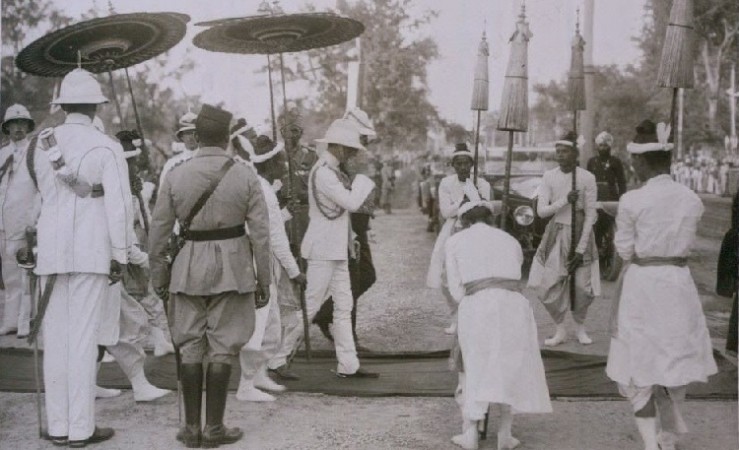
This Day in History - On July 28, 1921, a significant event occurred during the Indian freedom struggle when the Indian National Congress, the leading political organization in India at the time, decided to boycott the visit of the Prince of Wales, Edward VIII, to the country. This act of non-cooperation was a powerful statement against British colonial rule and represented a crucial moment in the struggle for India's independence.
Background: By the early 20th century, India had been under British colonial rule for nearly two centuries. The Indian National Congress, founded in 1885, became the primary platform for the Indian people to voice their demands for self-governance and political representation. However, the British government was reluctant to grant significant concessions to the Indian people, leading to growing discontent and resistance.
In 1919, the infamous Rowlatt Act was passed, which allowed the British government to arrest and detain Indian political activists without trial. This draconian law sparked widespread protests and intensified the demand for complete independence from British rule. These events set the stage for a more assertive approach by the Indian National Congress in their quest for freedom.
The Prince of Wales's Visit: In 1921, Edward VIII, then known as the Prince of Wales and heir apparent to the British throne, embarked on a royal tour to various parts of the British Empire. His visit to India was part of this tour, and the British authorities saw it as an opportunity to showcase the empire's grandeur and loyalty of its subjects.
However, the Indian National Congress saw the Prince's visit as an attempt by the British government to legitimize their rule and dampen the demand for self-governance. It was clear to the Congress leaders that the Prince's visit was a political gesture intended to demonstrate the support of the Indian people for the British monarchy.
The Congress Boycott: Under the leadership of prominent figures like Mahatma Gandhi, Jawaharlal Nehru, and Motilal Nehru, the Indian National Congress decided to take a bold stand. They announced a boycott of all official functions and events associated with the Prince of Wales's visit. This decision was part of their strategy of non-cooperation with the British authorities and aimed to demonstrate the widespread discontent among the Indian populace.
The boycott was not just limited to official ceremonies; it extended to public protests and strikes, which gained momentum across the country. Demonstrations were organized to coincide with the Prince's arrival in various cities, with protesters demanding complete independence and the end of British colonial rule.
Impact and Significance: The boycott of the Prince of Wales's visit marked a turning point in India's struggle for independence. It demonstrated the unity and determination of the Indian people in their fight against British colonialism. The non-cooperation movement gained immense popularity and encouraged people from all walks of life to join the freedom struggle.
The British government tried to downplay the impact of the boycott, but it was evident that their efforts to present a united front were crumbling. The Prince's visit did not achieve the expected results, and the Indian National Congress's message of non-cooperation resonated widely.
The boycott also brought the issue of India's independence to the international stage, garnering attention and sympathy from other nations. It laid the foundation for future mass movements, such as the Civil Disobedience Movement and the Quit India Movement, which ultimately led to India gaining independence on August 15, 1947.
The Congress boycott of the Prince of Wales's visit on July 28, 1921, was a pivotal moment in India's struggle for independence. The act of non-cooperation by the Indian National Congress sent a powerful message to the British government about the determination of the Indian people to break free from colonial shackles.
This event marked a turning point in India's quest for independence, inspiring further mass movements and strengthening the resolve of the Indian populace. It laid the groundwork for the eventual attainment of freedom and remains a significant chapter in the annals of India's history. The boycott of the Prince of Wales's visit remains a symbol of India's relentless fight for self-determination and the triumph of the human spirit against oppression.